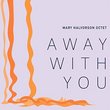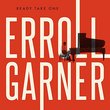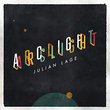| All Artists: Matthew Shipp Trio Title: Piano Song Members Wishing: 0 Total Copies: 0 Label: Thirsty Ear Release Date: 1/27/2017 Genres: Jazz, Pop Style: Number of Discs: 1 SwapaCD Credits: 1 UPC: 700435721227 |
Search - Matthew Shipp Trio :: Piano Song
 | Matthew Shipp Trio Piano Song Genres: Jazz, Pop
Listening to Matthew Shipp, one is always conscious that in between visceral feeling and a genuine transcendence there is a complex negotiation of language. It occurs between the musician and the music (whether it is his o... more » |
Larger Image |
CD Details
Synopsis
Product Description
Listening to Matthew Shipp, one is always conscious that in between visceral feeling and a genuine transcendence there is a complex negotiation of language. It occurs between the musician and the music (whether it is his own conception or that of Duke Ellington), between the musician and his collaborators, between the musician and his audience, and between the musician and himself. For, like many piano players, Shipp has the option of playing with others or in apparent isolation, though pianists ? who often favour the solo performance route ? inevitably find themselves in dialogue with the great logarithm of equal temperament. Shipp?s unaccompanied performances are invariably crowded with company. His ability to reference a whole spectrum of pianism ? and of great pianists ? without losing the integrity of his own conception is without peer on the present scene. But perhaps the way to start listening to him, if oversight or youth or a shift in penal servitude mean that this is your first experience of a player who has been on the recording scene for some thirty years now, is in the company of like-minded and responsive colleagues. That circle is, of course, always wider than the three men (in this case) in studio or on stage. A further level of conversation, and possible contention, comes into play during a long association with a record label. Matthew Shipp began his association with Thirsty Ear in 1999, with a sensitively varied set of duets with bassist William Parker, pieces that ranged from free-form explorations to songlike forms. Since that time, he has curated the influential ?Blue Series?, which has included some of the most vital recordings in contemporary creative music. But it is of the essence of human conversation that at some point it has to change direction or to end. Shipp has announced that Piano Song, with Michael Bisio and Newman Taylor Baker, will be his last for Thirsty Ear, though he will continue to curate the ?Blue Series?. It has been, in the familiar cliché, a journey. The network of players involved has little of the blandly collegial or flatly pragmatic feel of the usual recording ?stable?. Instead, it has been a dynamic and at moments almost confrontational process, with powerful personalities Bisio and Baker, whose interlocking contributions don?t simply mark them down as Mr Reliable and Mr Reliable, but as full sharers in a conception of music that is defined by question and answer, challenge, foresight and retrospect in confident balance. Whatever your take on the piano trio as an improvising form, and whatever your point of entry to it, whether that is Jess Stacy, Oscar Peterson, Paul Bley, Bill Evans, Keith Jarrett or one of the younger ?name? bands who do Radiohead and Bjork covers as well as jazz warhorses, this is a group that celebrates the ongoing vitality of the language and the philosophical subtlety of Shipp?s personal project. It is relatively commonplace for artists to say that every brushstroke, every danced gesture, every touch on the piano, and of course every turn of plot in a novel, is a moral act. This is both commonplace and something of a truism. What?s more often overlooked is that each of these things, including the most apparently abstract of them, which is probably music, is also an ethical act. If, like me, you don?t much enjoy being told what to listen up for in a record, let me restrict myself to this one suggestion: that you hear Piano Song as the work of a man at the centre of a great and shifting constellation of relationships, some of them actively present in the sound, some of them more indirectly responsible for its safe registration and preservation, some of them implicit in its language, but all of them part of the conversation. No excluded middle here. Brian Morton
Similar CDs
| Mary Halvorson Octet Away With You Genres: Jazz, Pop Label: Firehouse 12 Records | |
| Charlie Haden, The Liberation Music Orchestra, Don Cherry Time / Life Genres: Jazz, Pop Label: Impulse | |
| Erroll Garner Ready Take One Genre: Jazz Label: Legacy | |
| Wolfgang Muthspiel, Brad Mehldau, Larry Grenadier Rising Grace Genre: Jazz Label: ECM | |
| Vijay Iyer, Wadada Leo Smith A Cosmic Rhythm With Each Stroke Genres: Jazz, Pop Label: ECM | |
| Julian Lage Arclight Genres: Jazz, Pop Label: Mack Avenue | |

 Track Listings (12) - Disc #1
Track Listings (12) - Disc #1




